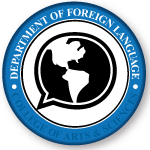Critical Perspectives on Ngugi wa Thiong'o by G. D. Killam
This article was reused with kind permission.
DOI: 10.2307/40142145 Stable URL: https://www.jstor.org/stable/40142145Abstract
Acknowledging the vast and continuing "realignments of power and long overdue reassessments of the cultures of the third world," the editors of the Critical Perspectives series propose, through a projected thirty-six critical monographs, to provide Euro-American audiences with the "documents and polemics" which reflect the reality of these realignments and reassessments. The thirteenth volume to appear in the series, Critical Perspectives on Ngugi wa Thiong' o, is one such document, comprising twenty-four essays by and about Ngugi, East Africa's foremost novelist and social critic (see WLT 59:1, pp. 26-30). Divided into six sections, the volume contains interviews with Ngugi and general critical articles, including his own well-known essay, "Literature and Society," as well as various critical and historical commentaries on and analyses of his four major novels-Weep Not, Child (1964), The River Between (1965), A Grain of Wheat (1967), and Petals of Blood (1977; see WLT 52:4, p. 681)-and his first book of nonfiction, Homecoming (1972).

